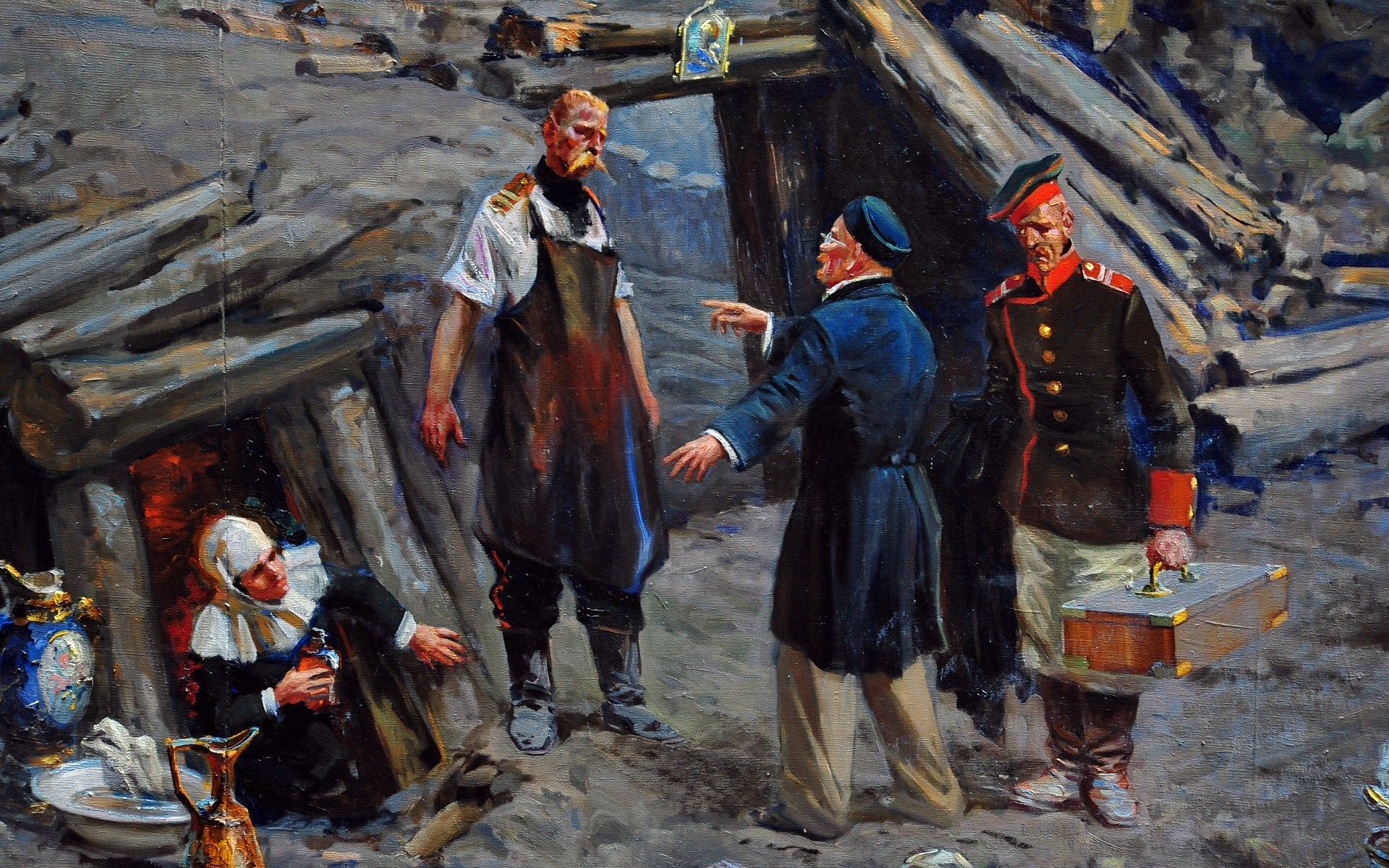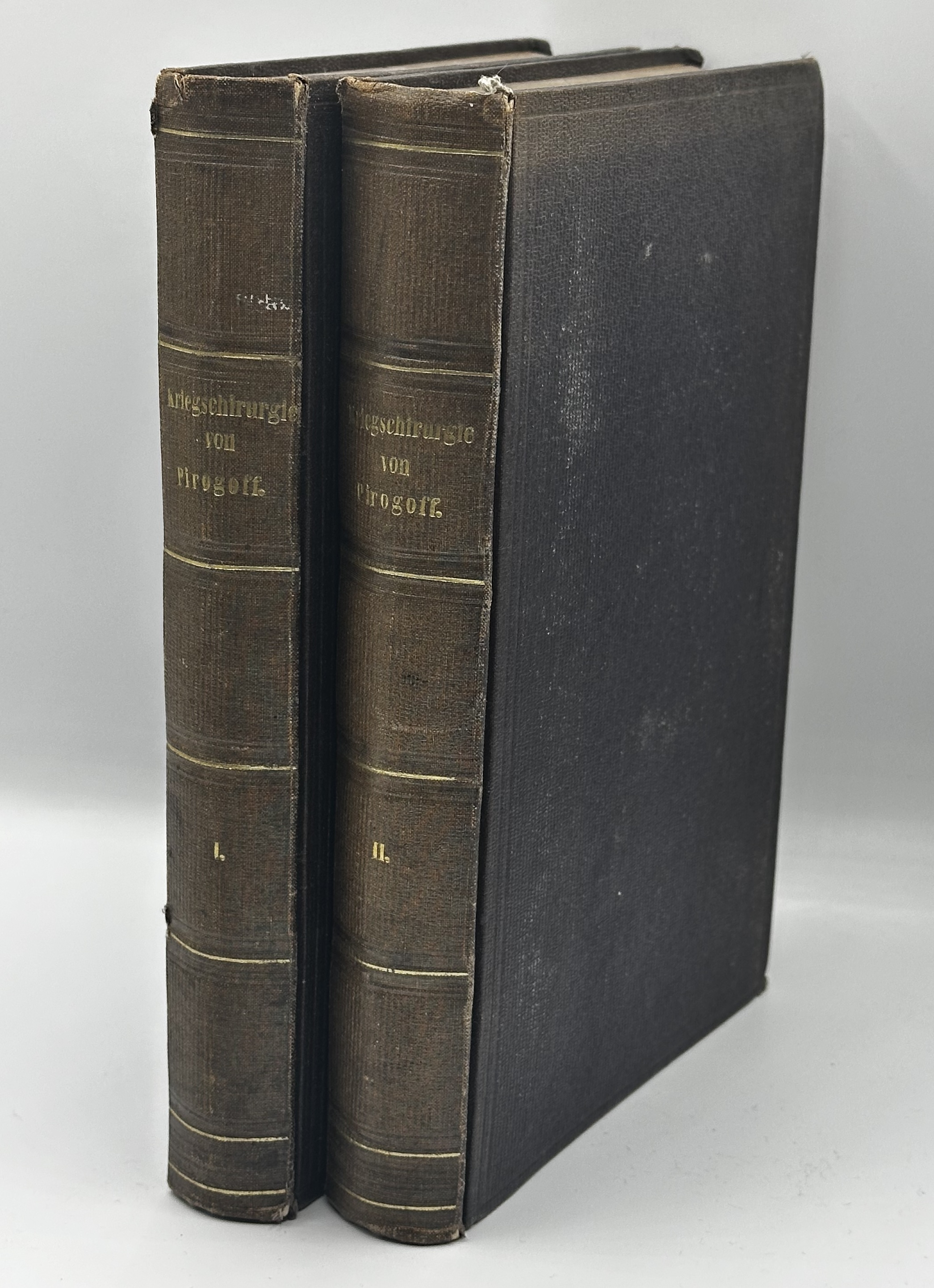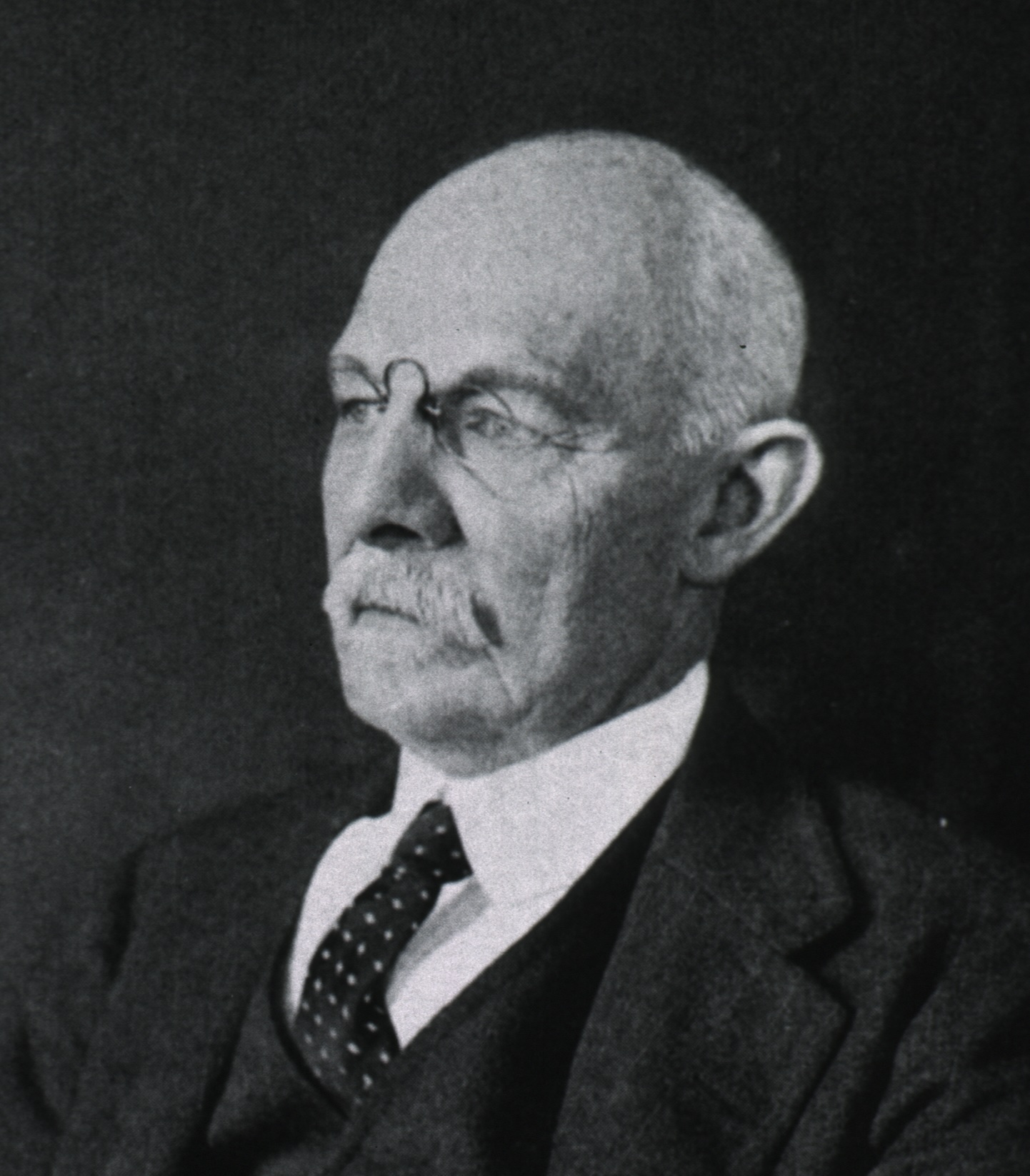Search results3 results
LIBRARY

Germany, 19 C. 2 half
Pirogov, Nikolay Ivanovich
PIROGOV, Nikolay Ivanovich (1810-1881). Grundzuge der allgemeinen Kriegschirurgie nach Reminiscenzen aus den Kriegen in der Krim und im Kaukasus und aus der Hospitalpraxis (Principles of general war surgery after reminiscences from the wars in the Crimea and the Caucasus and from hospital practice), Leipzig: F.C.W. Vogel, 1864. In German language. The world's first edition

Germany, 19 C. 2 half
Pirogov, Nikolay Ivanovich
PIROGOV, Nikolay Ivanovich (1810-1881). Grundzuge der allgemeinen Kriegschirurgie nach Reminiscenzen aus den Kriegen in der Krim und im Kaukasus und aus der Hospitalpraxis, Leipzig, F. C. W. Vogel, 1864. In 2 Volumes (1: iv, 1-528 pp. and 2: 529-1168 pp., 1 nn Errata page). 'Principles of general war surgery after reminiscences from the wars in the Crimea and the Caucasus and from hospital practice' in German language. The world's first edition.
PEOPLE

William Stewart Halsted (1852–1922) was an American surgeon, born in New York City, and one of the “Big Four” founding professors of Johns Hopkins Hospital. He studied medicine at Columbia University (graduating in 1877) and refined his skills in Europe (1878-1880). He pioneered aseptic surgical techniques, adopted German surgeons' training system and introduced the first American surgical residency program at Johns Hopkins in 1889. He established the Halstedian principles: gentle tissue handling, meticulous hemostasis, and layered wound closure. In 1889, he also became the first Chief of Surgery at Johns Hopkins. He introduced rubber surgical gloves (1890), initially to protect his nurse and future wife from skin irritation. Halsted also made major contributions to breast cancer surgery (Halstedian radical mastectomy) and the use of local anesthesia, though his experiments led to lifelong cocaine and morphine addiction. He died in 1922 in Baltimore, leaving a legacy as the architect of American modern surgical training and technique.